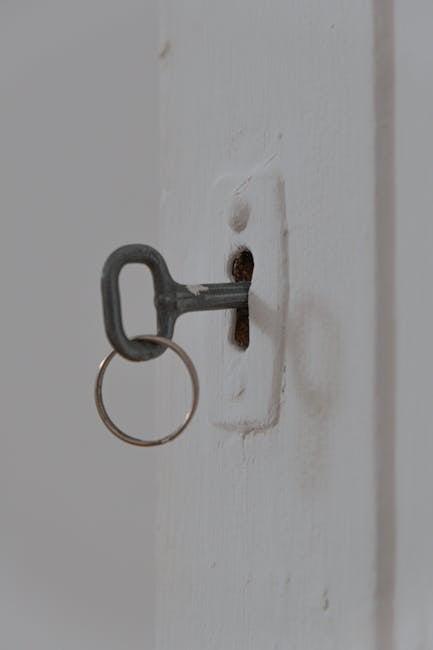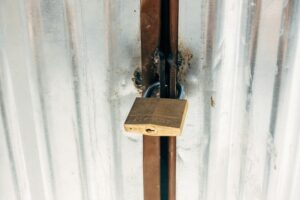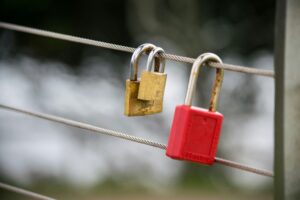It happens faster than you think. You step outside to grab the mail, take out the trash, or check a delivery — and the door swings shut behind you. That quiet click means one thing: you’re locked out, and your keys are still inside.
A house lockout can turn a calm day into a stressful situation in seconds. But here’s the good news — you’re not the first person this has happened to, and there are smart, safe ways to get back inside without breaking a window or your lock.
This guide walks you through what to do next, from simple door unlocking tips to when it’s time to call a professional locksmith for help.
Step 1: Take a Deep Breath and Assess Your Surroundings
The first thing to do isn’t to panic — it’s to pause. Getting locked out can cause frustration, but rushing into quick fixes often leads to damage or injury.
Before doing anything, make sure you’re in a safe place. If it’s dark, raining, or you feel unsafe, move to a well-lit area or contact a friend or neighbor.
Now, walk around your property carefully. Check every possible point of entry — side doors, back doors, or sliding glass doors. Sometimes, one latch or window wasn’t locked properly, and that’s your easiest way back in.
Just remember: never force or break anything. Safety always comes before speed.
Step 2: Look for a Spare Key
It might sound obvious, but it’s the most common and often forgotten solution. Think about where your spare key might be. Did you hide one somewhere? Leave one with a neighbor, family member, or friend?
If you’re renting, your landlord or property manager might have a backup. Many property owners keep a copy for maintenance or emergencies.
If you don’t have a spare yet, make a mental note: once this lockout is over, get one made and store it safely — ideally in a lockbox instead of under a doormat or flowerpot.
Step 3: Try Gentle, Safe Entry Methods
If no spare key is available, there are a few entry methods you can try without damaging your property.
For doors with spring-latch locks (the type that clicks shut but isn’t deadbolted), a simple tool like an old loyalty or gift card might help. Slide the card between the door and the frame while wiggling the handle — this can sometimes push back the latch and release the lock.
However, this method only works on certain locks, and you should never use excessive force. Avoid metal tools or sharp objects — they can scratch your door or bend the frame.
If your lock is a deadbolt, this technique won’t work, and forcing it could make things worse. That’s your signal to move to the next step.
Step 4: Contact Someone Who Can Help
Before calling a locksmith, consider your network. A family member, roommate, or close friend might have a spare key. Even if they’re not nearby, they might be able to meet you or bring help.
If you live in a rental or managed property, reach out to building management. Many apartment complexes have maintenance staff available for lockout assistance — even after hours.
If you can’t reach anyone and it’s getting late or unsafe, that’s when a 24-hour locksmith becomes your best option.
Step 5: Call a Professional Locksmith
When all else fails, call an expert. Professional locksmiths handle house lockouts daily and have specialized tools that unlock doors quickly without damage.
A reputable locksmith will:
-
Verify that you’re the property owner or authorized tenant
-
Explain the unlocking process before starting
-
Use non-destructive tools to open your door safely
-
Offer optional services like rekeying or key duplication afterward
If you’re in the Twin Cities area, Lock Champions Locksmith offers 24/7 emergency service with transparent pricing and quick arrival times — day or night.
Step 6: Think Prevention, Not Panic
Once you’re back inside, take a few minutes to plan for the future. A lockout is inconvenient, but it’s also a valuable reminder to strengthen your access and security habits.
Here are a few easy preventive ideas (no need for fancy tools or tech):
-
Install a keyless entry system so you never need a physical key again.
-
Keep a spare key in a small, combination lockbox hidden near your property.
-
Share a backup key with a trusted neighbor or relative.
-
Schedule lock maintenance once a year to ensure your locks don’t jam or fail.
These small steps can save you time, stress, and potentially hundreds of dollars in the future.
Why You Should Avoid Breaking In
It’s tempting to force the door or window open — but don’t. Kicking the door, using metal hangers, or prying windows can cause hundreds in damage, and in some cases, even trigger alarm systems or appear suspicious to neighbors or police.
Locksmiths are trained to open doors safely and legally. They know how to bypass locks without breaking them, keeping your home secure and your repair bills low.
Professional help isn’t just faster — it’s safer.
How Long Does It Take to Get Back In?
Most professional locksmiths can unlock a standard door in 5 to 15 minutes.
If your lock is more advanced — such as a high-security system or smart lock — it might take a bit longer, but the technician will explain every step before starting.
In most cases, you’ll be back inside before you even finish a cup of coffee.
Final Thoughts
Getting locked out of your house is frustrating, but it’s also solvable. The key is to stay calm, think clearly, and take safe, logical steps.
Start by checking all possible entries, then move to spare keys or management assistance. If nothing works, call a trusted professional who can unlock your door quickly and without damage.
Lock Champions Locksmith provides reliable door unlocking services and emergency help across the Twin Cities. With experienced technicians, 24-hour availability, and transparent pricing, they’ll have you back inside — safely and stress-free.
Visit lockchampionslocksmith.com for emergency help or to schedule preventive lock maintenance.
Frequently Asked Questions
What’s the first thing I should do when I realize I’m locked out?
Stay calm and check for safe, open entry points like side or back doors before taking any other action.
Can I unlock my own house door safely?
You can try gentle methods like using a plastic card on a spring-latch lock, but avoid forcing it. If unsure, call a professional locksmith.
How much does a locksmith cost for a house lockout?
Prices typically range from $75–$150 during normal hours and $150–$250 after hours, depending on your location and lock type.
Can a locksmith open any type of lock?
Yes. Professional locksmiths can open most residential locks, including deadbolts, smart locks, and high-security systems.
Will the locksmith damage my door or lock?
No. Certified locksmiths use non-destructive methods to unlock doors safely without damaging hardware or frames.
How can I prevent future lockouts?
Keep a spare key in a lockbox, give one to a trusted person, or upgrade to a keyless smart lock to eliminate the need for physical keys.




